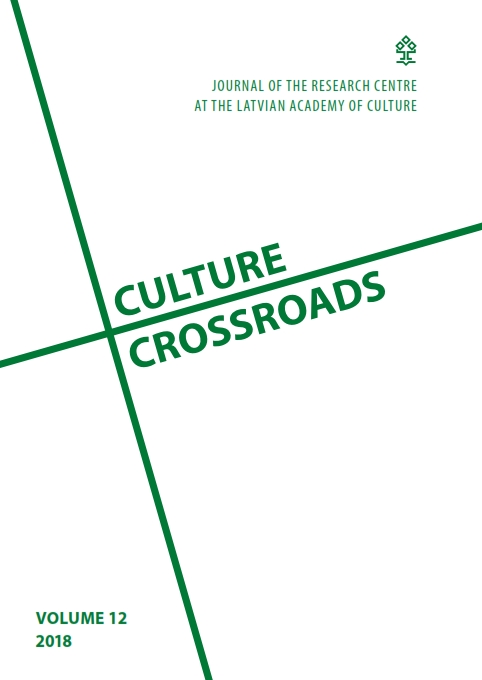Towards Social Cinema: Extending of Riga Poetic Style in the 1970s
Towards Social Cinema: Extending of Riga Poetic Style in the 1970s
Author(s): Inga Pērkone-RedovičaSubject(s): Cultural history, Poetry, Aesthetics, Sociology of Culture, Film / Cinema / Cinematography, Sociology of Art, History of Art
Published by: Latvijas Kultūras akadēmija
Keywords: Latvian cinema; documentary film; Riga Poetic Documentary Film School; Ivars Seleckis;
Summary/Abstract: In the 1960s, a group of young and very gifted documentary filmmakers established themselves at Riga Film Studio and developed a poetic style, based on visual metaphors which they named themselves as Riga Style but later in the Soviet and East European context the style and its creators came to be known as Riga Poetic Documentary Film School. Yet in the 1970s one can identify pronounced focusing by the documentary filmmakers on social issues, the aspirations to offer in their films analysis of the problems existing in the society and sometimes offering their solution without losing the artistic qualities of the films. The article written in 1971 by Armīns Lejiņš, the script writer and theorist of the poetic cinema, “Poetic Cinema + Scientific Cinema = Social Cinema” can be perceived as their manifesto. Lejiņš was convinced that by combining poetry and science, Riga documentary filmmakers could facilitate henceforth logical, analytical and dialectical thinking culture in their films. Within the framework of my article, I’ll provide a broader insight into the social angle of films by Latvian documentary filmmakers, into their thematic and aesthetic aspects, and also offer a more detailed analysis of the film “The Woman We Expect?” (Sieviete, kuru gaida?, 1978) – the concept, the process of its making, relations with censorship and its reception.
Journal: Culture Crossroads
- Issue Year: 12/2018
- Issue No: 1
- Page Range: 19-34
- Page Count: 16
- Language: English

